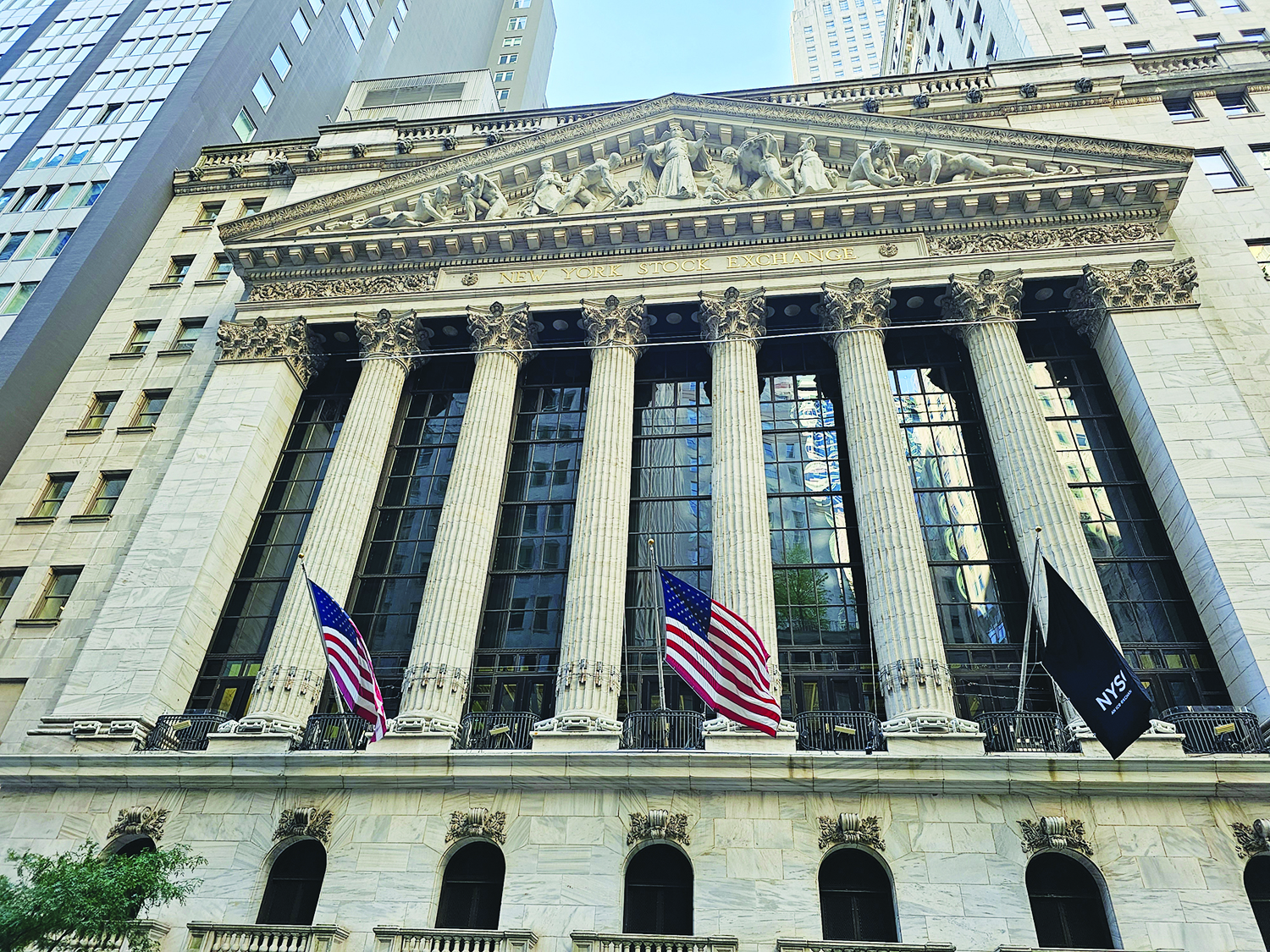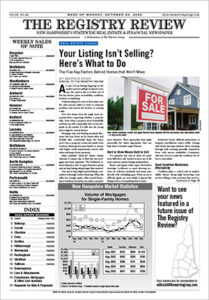
The statewide unemployment rate is still low, but other concerns are prompting economists and commercial real estate experts to keep a weather eye out for local economic trouble. iStock photo
The national and state economies seem to be developing a split personality that’s leaving economists and commercial real estate brokers puzzled about what lies ahead through the end of the year and beyond.
On the plus side, the U.S. unemployment rate, though it has risen ever so slightly of late, still stands at a relatively low 4.3 percent amid continued strong corporate profits across most of the country.
In New Hampshire, the jobless rate is even lower, at only 3 percent, though that’s up from 2.6 percent a year ago.
Meanwhile, the office markets across the U.S. and New Hampshire continued to stabilize, or even improve in some cases, after years of severe hardship caused by the rise of remote working.
So what’s the problem?
Signs of Softening, But Not Distress
It’s dealer’s choice: A growing list of concerns tied to tariffs, inflation, auto loan losses at regional banks, a possible AI-investment bubble, the federal government shutdown and, of course, the slightly rising jobless rates at both the national and state levels.
“There are clearly signs of softening,” said Brian Gottlob, an economist and director of the economic and labor market information bureau at the New Hampshire Department of Employment Security. “The economy is actually in a fairly fragile state.”
He specifically noted early signs of a weakening labor market, lingering inflation and slowing wage growth as major areas of concern.
Yet, Gottlob added that jobless claims are not significantly high in New Hampshire while the state hasn’t seen any massive layoffs of late.
“We’re kind of in this no-hire-no-fire labor market,” he said. “It seems businesses are very cautious.”
As for the commercial real estate market, data indicates there’s been no spike in CRE loan delinquency rates in New Hampshire, Gottlob said.
“If there was major [CRE lending] distress out there, you’d see it in the delinquency rate – and I’m not seeing that distress,” he said.
Bill Norton, president of Norton Asset Management in Manchester, said he’s concerned about the mixed economic signals he’s seeing – and their potential harm to the local CRE market.
“It’s the fog of war,” he said. “It’s difficult to see where we’re headed. [But] the economy right now seems flat.”
An Eye on Tariffs, Inflation
Among other challenges, tariffs are definitely hurting local businesses, Norton said.
One New Hampshire manufacturer he knows recently tried to export some of its products to Canada via truck – only to have the Canadian buyer reject the shipment due to the recent exchange of higher trade tariffs between the two erstwhile members of a continent-sized free trade pact.
The result: $116,000 worth of merchandise simply sat in a warehouse until the U.S. and Canadian governments later eased tariff tensions between the two nations, he said.
Meanwhile, inflation continues to rise, particularly for everyday groceries at local supermarkets, Norton added.
As for commercial real estate, Norton said a developer he knows was recently contacted by a bank that wanted him to finish a multifamily housing project that a previous borrower was financially struggling to complete.
At the same time, office markets across the state are largely flat and showing few signs of major turnarounds.
“Conditions are very murky out there,” Norton said.
Office, Industrial Markets Steady
Robert Rohrer, managing director and principal at commercial brokerage Colliers International’s New Hampshire office, acknowledged that the economy today is a “mixed bag” for businesses and therefore the CRE market.
But he maintained that the office market in New Hampshire is holding its own, with the overall statewide vacancy rate remaining flat at around 13.4 percent as of the second quarter, according to Colliers data.
Meanwhile, office asking rents are also holding firm, around $21.50 per square foot, he noted.
“The office market is kind of steady,” he said. “It hasn’t changed much [lately]. The landlords don’t seem to be panicky at all.”
The state’s industrial real estate market also remains strong. Though industrial vacancy rates have risen over the past year or two, the rate is still at a solid 5.3 percent, according to Colliers data.
Echoing the same point as Norton, Kristie Russell, the local research manager at Colliers, said CRE loan delinquency rates are currently not increasing in New Hampshire.
The bottom line: CRE markets in some parts of the country, such as Boston’s office market, may still be struggling. But not as much in New Hampshire’s CRE market, Russell said.
“We’re kind of insulated here,” she said.
Watching the Data Closely
Chris Norwood, president of NAI Norwood Group in Bedford, agreed that the local economy – and therefore the CRE market – is performing relatively well.
“Despite all the talk, I’m seeing very little hesitation in the market,” he said. “People are saying, ‘Our business can weather the storm.’ Are there dents in the economy? Yes. But businesses continue to move on.”
Bruce Elmslie, an economist at the University of New Hampshire, said, like others, that he’s impressed with New Hampshire’s economic performance to date.
“The state’s jobless rate is only 3 percent,” he said. “That’s about as low as you can get.”
But he added he’s primarily concerned right now with persistent inflation within the overall U.S. economy.
“There’s quite a lot of inflationary pressures out there – and they’re not just tied to tariffs,” he said.
As a result, he’s closely monitoring cost-of-living data, as well as other economic issues, such the condition of regional banks and whether the promise of AI is real or overblown.
“We’re all watching and waiting,” he said of economic developments. “There’s a lot of weakness in the national economy.”

